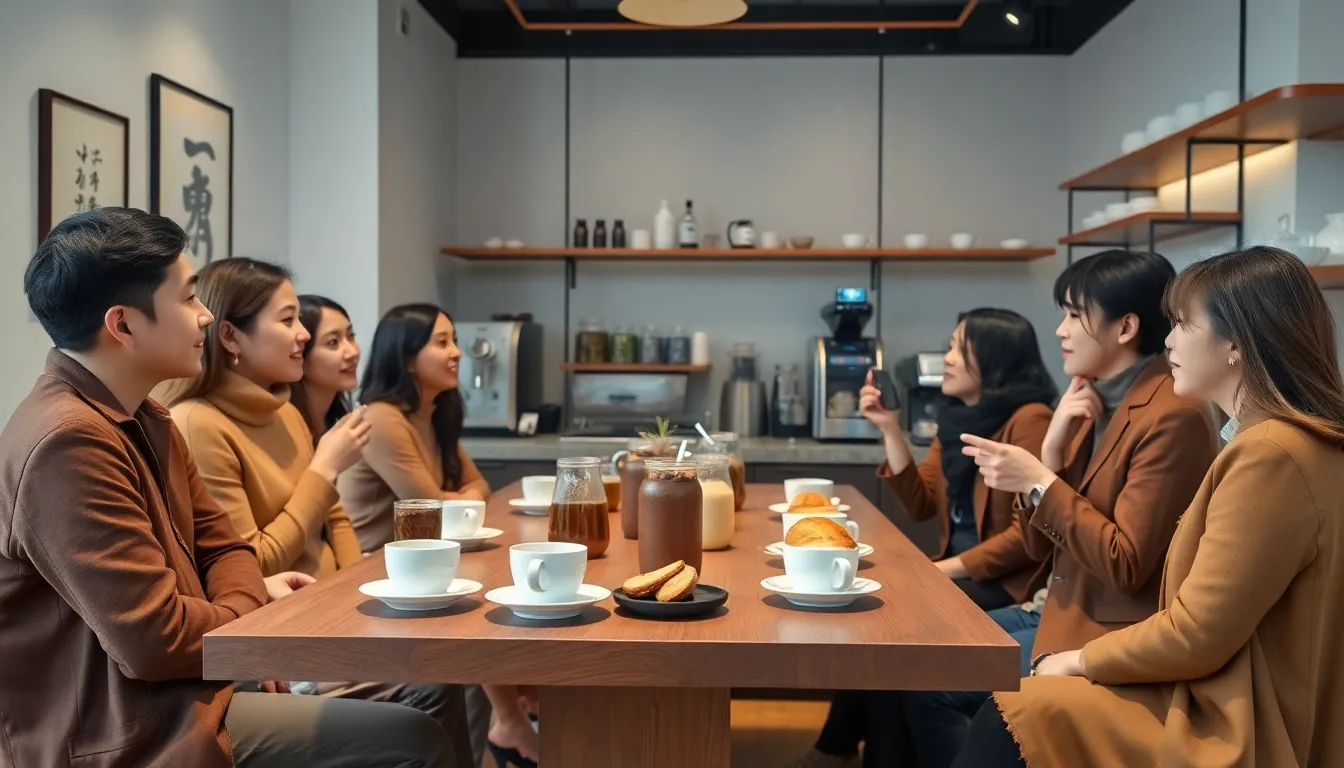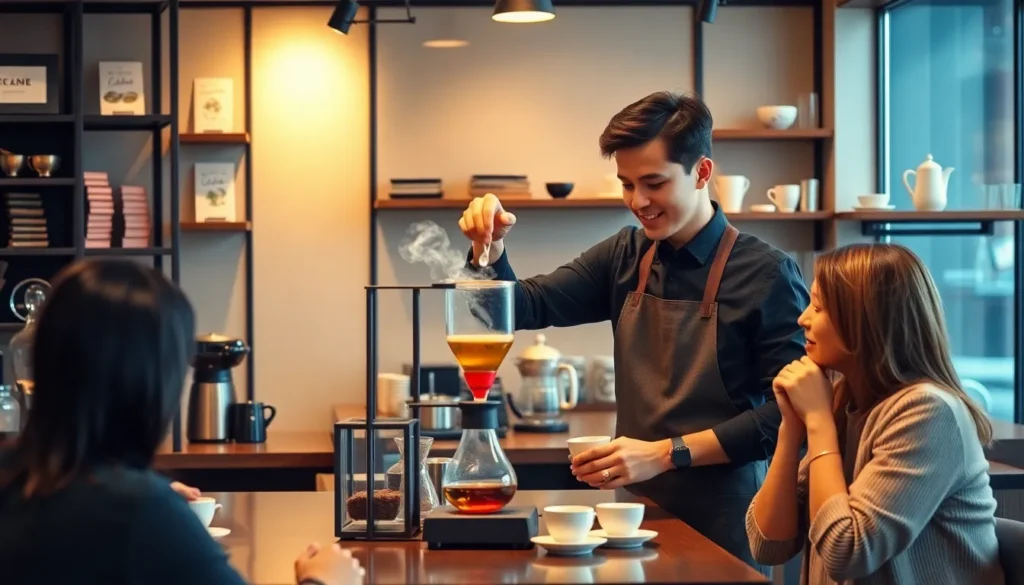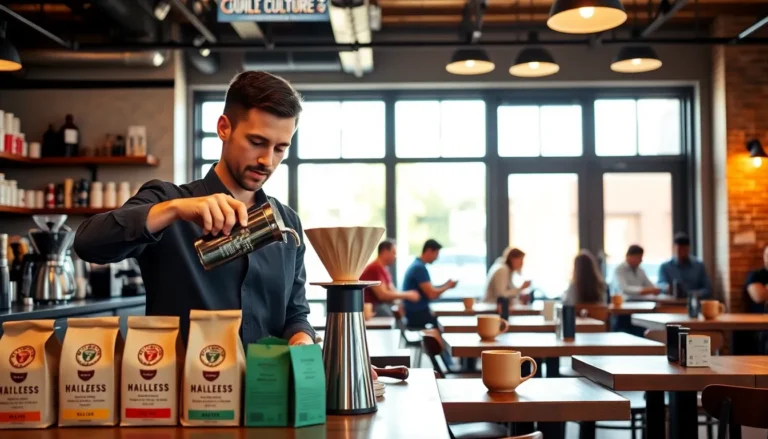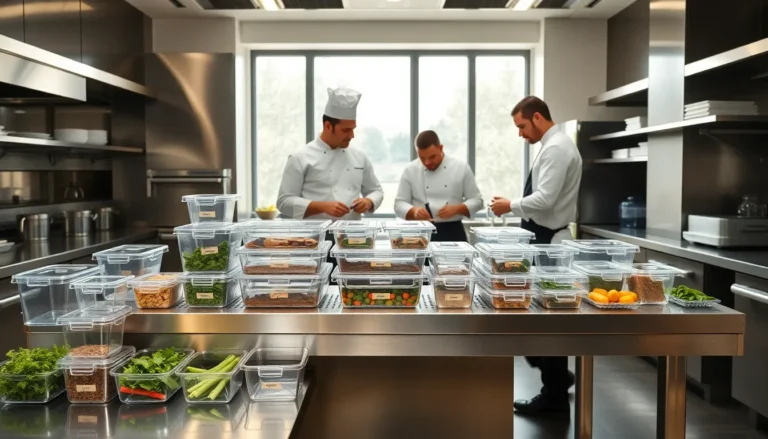Japan’s coffee culture is not just a beverage choice: it’s a delightful tradition steeped in history and creativity. Imagine stepping into a café where the aroma of expertly brewed coffee mingles with the delicate hum of conversation. You might even catch a barista performing high-stakes siphon brewing like it’s an art form, or a magic trick. In this text, we’ll explore the rich tapestry of Japanese coffee culture from its historical roots to the modern-day trends, proving why coffee in Japan is about so much more than just caffeine.
Table of Contents
ToggleHistorical Development of Coffee in Japan

The Rise of Coffee Consumption
Coffee made its formal appearance in Japan during the early 18th century. Initially enjoyed by the elite, it swiftly spread to the broader population in the late 19th century, coinciding with the opening of Japan to the West. This period marked the establishment of coffee houses known as kissa, which quickly became popular spots for intellectuals to gather and engage in lively discussions.
Japanese coffee consumption truly took off after World War II, as the influence of American soldiers and culture permeated the country. Suddenly, coffee wasn’t just a drink for scholars: it became a staple in homes and offices across Japan.
Influence of European Coffee Traditions
Japan’s coffee culture was significantly shaped by European practices, particularly from France and Italy. The influence of French café culture introduced the notion of leisurely sipping coffee while indulging in pastries. Similarly, Italian espresso culture brought forth a passion for rich, concentrated brews. These traditions merged seamlessly with Japanese aesthetics, creating a unique coffee experience that is still cherished today.
Traditional Japanese Coffee Techniques
Siphon Brewing
One of the most iconic methods of brewing coffee in Japan is siphon brewing. This technique uses a vacuum coffee maker to create a theatrical experience where water and coffee unite in a mesmerizing dance. This method highlights the precision, care, and craftsmanship that Japanese baristas pour into their creations. The result? A clean, flavorful cup that truly showcases the coffee’s essence.
Pour-Over Methods
Another beloved technique is the pour-over method. Influenced by Japanese tea ceremonies, this method focuses on meticulous attention to detail. Baristas use a slow and steady pour, allowing the water to interact intimately with the coffee grounds. This not only preserves the distinct flavors of each bean but also elevates the entire brewing process to a meditative ritual.
Modern Japanese Coffee Trends
Specialty Coffee Shops
In recent years, specialty coffee shops have exploded across Japan’s urban landscape. These establishments epitomize the “third wave” coffee movement, where the focus lies on high-quality beans, unique brewing methods, and a thorough appreciation for flavor profiles. Coffee enthusiasts flock to these shops to experience the artistry and expertise of skilled baristas.
The Role of Coffee Tasting Events
Coffee tasting events, akin to wine tastings, have also gained popularity. Here, participants engage in sensory exploration, learning to discern subtle notes and flavors in different brews. These gatherings foster a community of coffee aficionados, allowing individuals to deepen their knowledge while sipping delicious creations.
Cultural Significance of Coffee in Japan
Coffee as a Social Experience
In Japan, coffee is much more than a morning pick-me-up: it’s a celebration of social interaction. Cafés serve as gathering spots for friends, colleagues, and even strangers, fostering connections over shared cups of coffee. Whether it’s a cozy corner café or a sleek, modern spot, the experience transcends the beverage itself, becoming a cherished social ritual.
Fusion of Coffee with Japanese Aesthetics
Japanese aesthetics bring a unique flair to the coffee experience, blending minimalist designs with thoughtful presentations. The careful arrangement of coffee cups and the ambiance of a café often reflect values of harmony and simplicity found in traditional Japanese culture. This fusion creates not just a space to sip coffee, but an environment that calms the soul.



